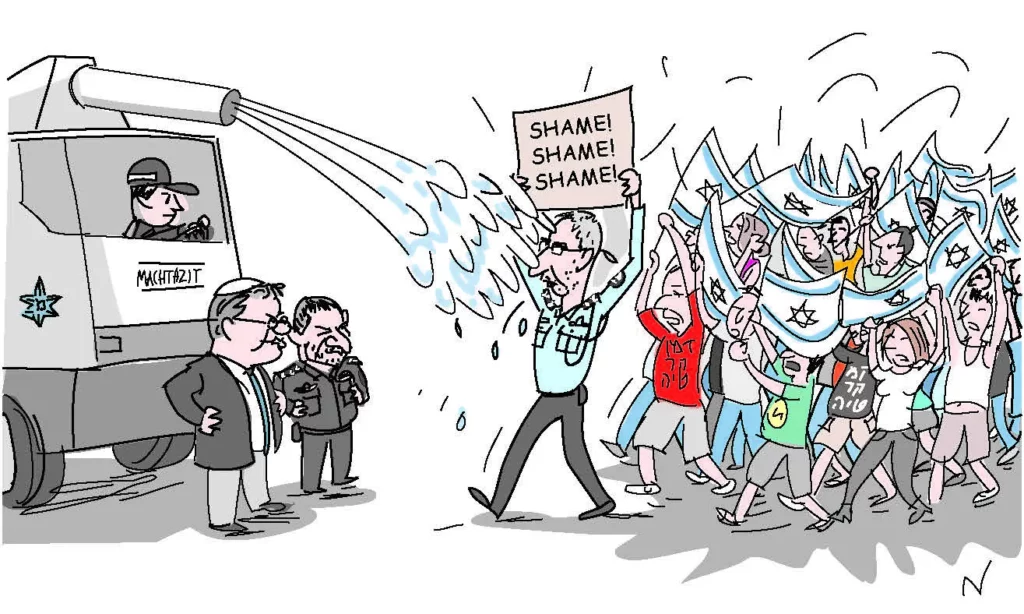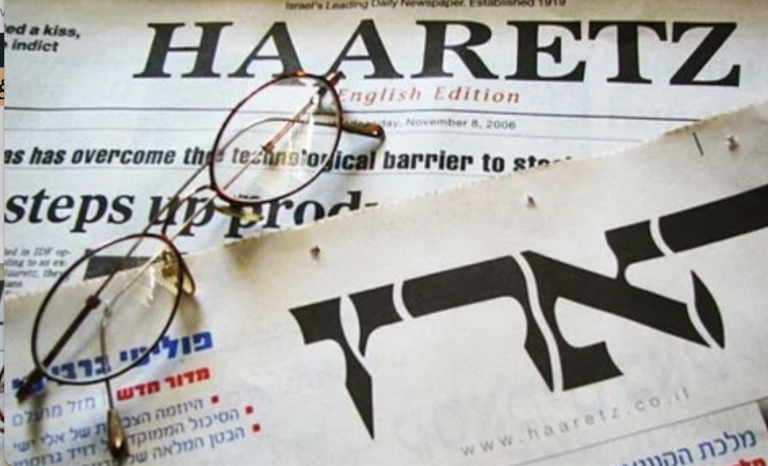By Andrea Tucci,
The Haaretz newspaper (in Hebrew, “The Land [of Israel]”) was founded in 1918. Initially, it was sponsored by the British military government in Palestine. In 1919, a group of Zionists with socialist leanings, primarily from Russia, took over.
Though non-partisan and careful not to align with any specific party, Haaretz had a progressive orientation in the 1920s and 1930s, somewhat linked to the General Zionists movement, which later contributed to the formation of the Progressive Party.
During the Yishuv period (the Jewish population present in Palestine before 1882, long before the establishment of the State of Israel), Haaretz was considered the most sophisticated of the newspapers in circulation.
In 1935, the newspaper was purchased by Salman Schocken, a German-Jewish businessman who had left Germany a year earlier following the Nazis’ rise to power. Schocken was active in Brit Shalom, also known as the Jewish-Palestinian Alliance for Peace, an organization advocating coexistence between Jews and Arabs and supporting a homeland for both peoples.
Today, the Schocken family still owns 75 percent of the newspaper’s shares.
It is published in both Hebrew and English, with the English version also sold alongside the international edition of the New York Times.
The newspaper is known for its leftist and progressive positions on domestic and international issues and ranks as the third most circulated newspaper in Israel.
Haaretz is widely read by international observers, especially in its English edition, and serves as a reference point for the international press for analysis of Israeli and Middle Eastern affairs.
Historically, it has had a relatively low circulation; however, for several years, it has been considered the most influential newspaper in Israel. It is widely read within Israeli intelligentsia and among political and economic elites.
Haaretz and its core readership are fiercely opposed to Israel’s occupation of the West Bank, the government’s support for settlers there, the government’s recalibration of the High Court, Israel’s state-religion status quo, and other conservative trends, with a leftist ideology that is strongly critical of Netanyahu’s government.

Haaretz Cartoon
These factors have converged to make Haaretz more contentious for Israelis today than ever before. First, the country is less receptive to a left-wing agenda as most citizens lean rightward. Second, Israelis feel they are under an unjustified and hypocritical international siege, making them less forgiving of how they are perceived globally. Third, Israel’s left is now a minority, leading to a sense of bitterness and increased antagonism.
Even though Haaretz operates with modest resources, what’s been impressive lately is the breadth of its reporting and analysis, presenting multiple truths to readers who might prefer not to confront them.
With Netanyahu currently leading a full-scale assault on Gaza and the West Bank, it’s impossible to envision the future clearly. Instead, it is essential to build security for Israelis, which they naturally require, while ensuring Palestinians receive the dignity and independence they rightfully demand.
Haaretz is an independent Israeli newspaper admired by many foreigners and loathed by many Israelis—read by few, denounced by many.
Unfortunately, the frustration of the global public opinion today, not just among leftists, is not only that Israel doesn’t listen, but that Israel persists with its inhumane and misguided strategy despite not listening.




